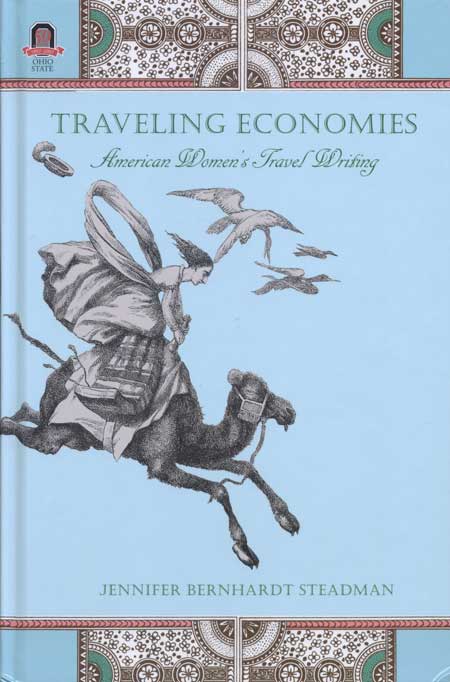| click here to read excerpts from the book | leave / read comments and critiques of the book |
 Traveling Economies
Traveling Economies
American Women’s Travel Writing
Jennifer Bernhardt Steadman
 “In addition to foregrounding the political economies within which these texts work, Steadman brilliantly highlights the most fascinating moments in these diverse texts. Her style also conveys the excitement, humor, and wry observation apparent in the travel writing she critiques.” —Legacy
“In addition to foregrounding the political economies within which these texts work, Steadman brilliantly highlights the most fascinating moments in these diverse texts. Her style also conveys the excitement, humor, and wry observation apparent in the travel writing she critiques.” —Legacy
“Jennifer Steadman’s Traveling Economies is a fine and invigorating work. Her serious literary recovery of the writers she treats revises our understanding of 19th-century U.S. literature from a variety of perspectives. Particularly noteworthy is Steadman’s analytic integration of African American and white writers, and her corresponding attention to the privileges and/or disadvantages that accrued to each writer due to her race and class.” —Jennifer Greeson, Princeton University
The black and white women travel writers whom Jennifer Bernhardt Steadman investigates in Traveling Economies astonish modern readers with their daring, stamina, and courage. That these women traveled at all is surprising: Nancy Prince spent nearly a decade as an African American member of the Russian Imperial Court; Amy Morris Bradley went to Costa Rica as a governess in hopes of saving her health and finances after years as an impoverished teacher in Maine; and Julia Archibald Holmes carried the banner of dress reform to the heights of Pikes Peak and to the pages of a feminist periodical. Developing the concept of the “ragged edge,” Steadman highlights these women’s shared experiences of penury, work, and independence. Genteel poverty, black skin, outspoken feminism, or sometimes all three impacted the material conditions of their ragged-edge travel (early muckraking journalist Anne Royall walked until her feet were a bloody mass of blisters). Being on the ragged edge also affected the way they represented themselves and their travels (Mary Ann Shadd Cary presented her outspoken advocacy of black emigration to Canada as appropriately feminine). Frances Wright used her travel writing to imagine the new nation as a potential utopia for women citizens; she paid a high price for daring to try to change the social terrain she crossed. Steadman’s interdisciplinary work with archives, newspapers, memoirs, and letters and her thoughtful close readings of the resulting evidence recover these important women’s travels and writing and invite us to rethink where and how women went and what they wrote in antebellum America.
Jennifer Bernhardt Steadman is visiting assistant professor in the graduate
studies program at Trinity College.
|
Aug 2007 American literature, American Studies; Women's Studies 248 pp. 6x9 |
|
| $54.95 cloth 978-0-8142-1066-6 | Add cloth to shopping cart |
| $14.95 CD 978-0-8142-9143-6 | Add CD to shopping cart |


